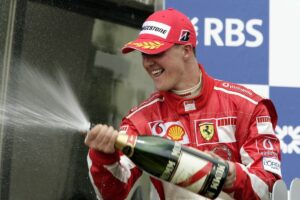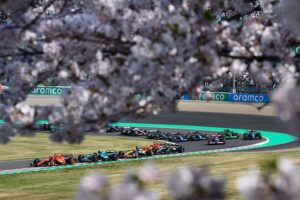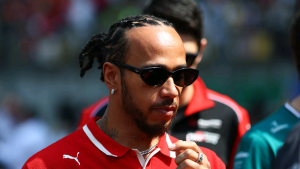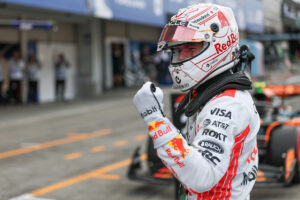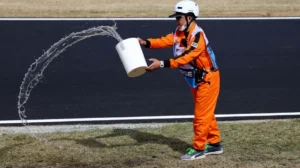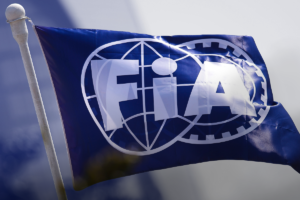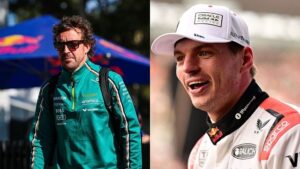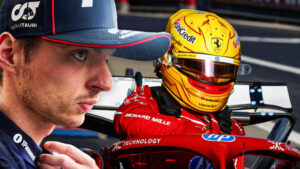SHOCKING NEWS: Verstappen DISMISSED as brutal statement made..Amid Red Bull…Read More
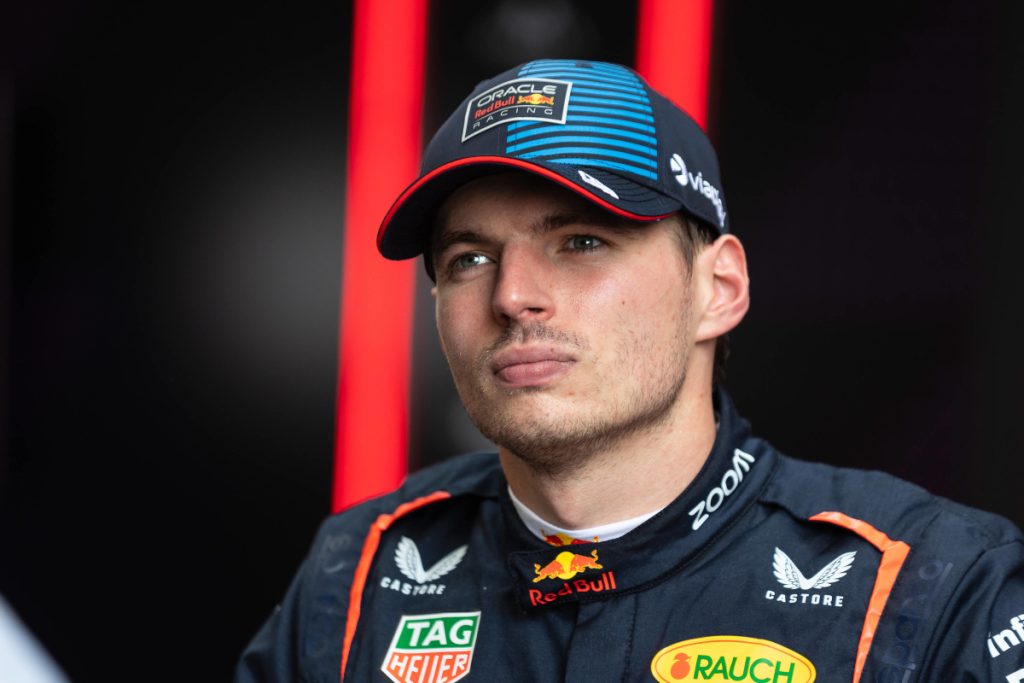
Verstappen DISMISSED as brutal statement made
Max Verstappen has been dismissed in a blunt and controversial assessment of his Formula 1 world championships, reigniting the debate about who truly deserves the title of the greatest driver in the sport’s history. The Red Bull star, currently on the verge of clinching his fourth world championship, was the subject of a sharp critique by 1997 world champion Jacques Villeneuve, who questioned the merit of some of Verstappen’s titles.
Verstappen is poised to secure his fourth championship as Formula 1 heads to the Las Vegas Grand Prix. He can clinch the title by finishing ahead of his closest rival, Lando Norris, making it a historic moment for the Dutchman. If he succeeds, he will join the elite ranks of drivers with four titles, equaling the legendary Sebastian Vettel and Alain Prost. Given that Verstappen is just 27 years old, he has many more years to further enhance his title count and cement his place in F1 history.
The conversation around whether Verstappen is the greatest F1 driver of all time gained momentum following his dominant victory in the Brazilian Grand Prix. Many considered his performance one of the best of his career, and the result led to renewed discussions on where he stands among the sport’s all-time greats. Prominent among those weighing in on the debate was motoring journalist and television personality Jeremy Clarkson, who declared after the Brazil race that Verstappen had proven himself to be the greatest F1 driver of all time.
Clarkson’s bold statement, however, was met with fierce disagreement from Villeneuve, who dismissed the idea that Verstappen could already be considered the greatest. Villeneuve, who won his own championship in 1997, acknowledged Verstappen’s talents but was quick to downplay the significance of some of his titles. Speaking to Grosvenor Sport, Villeneuve said, “How can Jeremy Clarkson say Max Verstappen is the greatest of all time? He had a great season when he beat Lewis [Hamilton] for his first championship. Then he’s had the same way that Lewis won his first one. Then he’s had easy ones, the same way Lewis had easy ones.”
Villeneuve’s remarks referenced the fierce competition during Verstappen’s first title battle against Lewis Hamilton in 2021, which came down to the wire in a controversial finish at the Abu Dhabi Grand Prix. Since then, Verstappen has largely dominated the sport, with some arguing that his subsequent championships have been easier, given Red Bull’s superior performance compared to other teams. Villeneuve likened this to Hamilton’s dominance during the Mercedes era, when the British driver secured multiple titles with relatively little opposition due to his team’s dominance.
Villeneuve went further, pointing out the difficulty in comparing drivers from different eras of Formula 1. He argued that changes in the sport, from technological advancements to rule changes, make it impossible to determine a definitive “greatest of all time.” “You cannot compare the era of Fangio to now, they are different eras,” Villeneuve said. “So you cannot say any of them is the greatest of all time, the sport has changed too much.”
Villeneuve’s comments underscore the ongoing debate about the criteria used to evaluate greatness in Formula 1. While Verstappen’s supporters, including Clarkson, believe his combination of talent, consistency, and achievements makes him the best ever, others argue that the dominance of Red Bull’s car plays a significant role in his success, just as Mercedes’ dominance benefited Hamilton in his prime.
As Verstappen stands on the brink of winning his fourth title, the question of whether he deserves the title of F1’s greatest driver remains unresolved. What is clear, however, is that Verstappen’s performances continue to impress, and his place among the sport’s elite is undeniable. But for now, the debate over the greatest driver of all time rages on, with figures like Villeneuve offering sharp reminders that no era of F1 can be directly compared to another.

